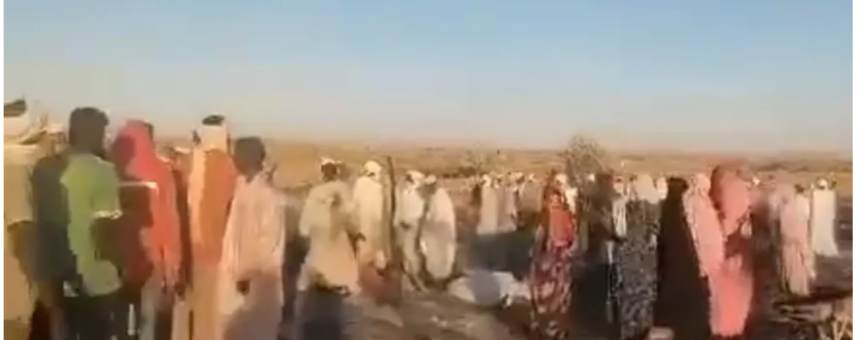EL-FASHER, SUDAN – A devastating air strike on a bustling market in Darfur, Sudan, has reportedly killed hundreds of civilians, sparking outrage and condemnation from international human rights organizations. Eyewitnesses and local sources are accusing the Sudanese army of carrying out the attack, which occurred on March 25, 2025 in the general area within Darfur.
The strike reportedly hit during peak trading hours, when the market was packed with people buying and selling goods. Initial reports indicate that the death toll is likely to be in the hundreds, with many more injured and an unknown number still missing amidst the rubble.
“The scene is horrific,” said a local resident who wished to remain anonymous. “Bodies are scattered everywhere. We are trying to pull people from the wreckage, but we don’t have enough resources. This was a deliberate attack on innocent civilians.”
The Sudanese army has not yet issued an official statement regarding the incident, but sources close to the military have suggested that the strike may have been targeting rebel forces suspected of operating in the area. However, the widespread destruction and the high number of civilian casualties have fueled accusations that the attack was indiscriminate and a violation of international humanitarian law.
The attack comes amidst escalating violence in Darfur, where conflicts between the army, allied militias, and various rebel groups have intensified in recent months. The region has been plagued by instability since the early 2000s, when a brutal conflict erupted, leaving hundreds of thousands dead and millions displaced.
The UN and other international organizations have been calling for an immediate end to the violence and for all parties to the conflict to respect international humanitarian law. The latest airstrike is likely to further complicate efforts to achieve peace and stability in the region and raises serious concerns about the safety and security of civilians caught in the crossfire.
The situation remains fluid and more information is still emerging. This article will be updated as more details become available.









